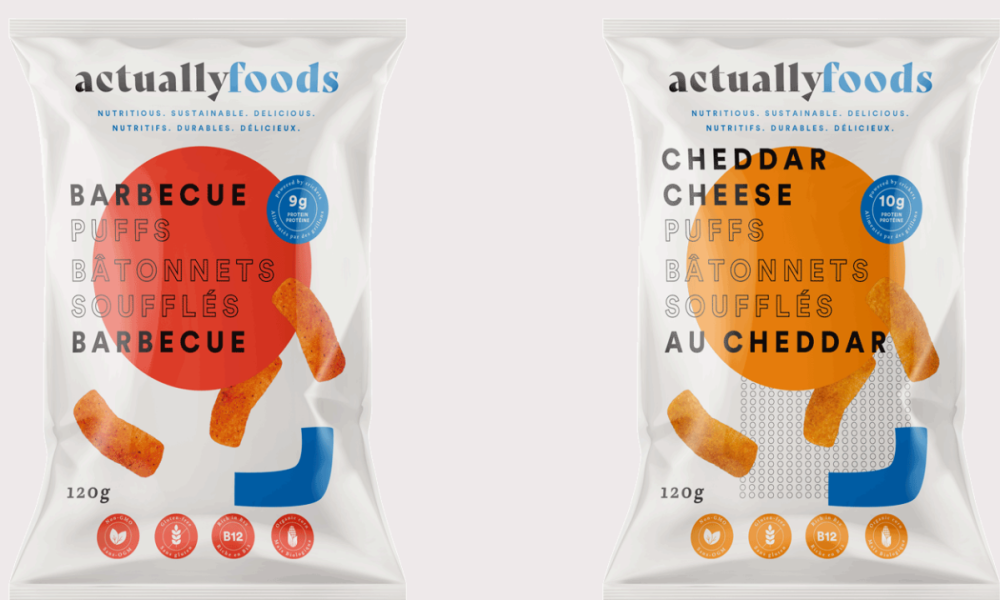World news
Canadian snack foods may soon have crickets as primary ingredient

In a move approved by Canadian Prime Minister Justin Trudeau, snack foods in Canada can now be made with crickets being the main ingredient.
According to statistics provided by The Food and Agriculture Organization (FAO) approximately 2 billion people worldwide eat insects as part of their regular diet. FAO also said in a report that there are many benefits to this and questioned why the West doesn’t serve them as a delicacy “they’re high in protein, low in cost, eco-friendly and tasty. And only in the West have we resisted them.”
Actuallyfoods currently has cricket flour as one of their main ingredients. The Canadian food company also touted their cheese puffs, which they said are “actually” good for you.
“We’ve ditched so-called ‘natural’ ingredients that are actually not as clean as they claim. Instead, we’re making something you can feel good about, using unexpected ingredients that, although surprising, actually boast the health benefits you’re looking for: like high-protein cricket powders, fava bean, and more,” Actuallyfoods states on their website.
The jalapeno cheese puffs can be seen by users when they load up the Actuallyfoods website. The cheese puffs look the same as a regular cheese puff, therefore if consumers fail to check the ingredients, they will consume organic cricket flour without being aware of it.
In June, Canadian food company Aspire Food Group made the announcement that it had completed the largest cricket producing factory in the world. Under Trudeau, Canada has contributed $8.5 million to Aspire Food Group’s London, Ontario cricket farm, per Chatham Daily News.
Aspire Food Group said their factory will be capable of producing 9,000 metric tonnes of crickets every year for “human and pet consumption,” this works out at approximately 2 billion crickets.
“Crickets are currently being explored as a protein-rich superfood. They contain fibre and are already found in grocery stores and restaurants and have a smaller environmental footprint than traditional protein sources,” Canadian Manufacturing reported.
President Joe Biden said in March that “With regard to food shortages. Yes, we did talk about food shortages. And, and it’s gonna be real.”
Canadian Prime Minister echoed these sentiments in April. “We’ve seen… disruptions of supply chains around the world, which is resulting in higher prices for consumers and democracies, like ours, and resulting in significant shortages and projected shortages of food, of energy in places around the world.”
“This is going to be a difficult time because of the war, because of the recovery from the pandemic,” Trudeau went onto say.
Terry A. Hurlbut has been a student of politics, philosophy, and science for more than 35 years. He is a graduate of Yale College and has served as a physician-level laboratory administrator in a 250-bed community hospital. He also is a serious student of the Bible, is conversant in its two primary original languages, and has followed the creation-science movement closely since 1993.
-

 Civilization3 days ago
Civilization3 days agoWhy Europe Shouldn’t Be Upset at Trump’s Venezuelan Actions
-

 Executive4 days ago
Executive4 days agoHow Relaxed COVID-Era Rules Fueled Minnesota’s Biggest Scam
-

 Constitution5 days ago
Constitution5 days agoTrump, Canada, and the Constitutional Problem Beneath the Bridge
-

 Christianity Today3 days ago
Christianity Today3 days agoSurprising Revival: Gen Z Men & Highly Educated Lead Return to Religion
-

 Civilization4 days ago
Civilization4 days agoThe End of Purple States and Competitive Districts
-

 Executive3 days ago
Executive3 days agoWaste of the Day: Can You Hear Me Now?
-

 Executive4 days ago
Executive4 days agoWaste of the Day: States Spent Welfare in “Crazy Ways”
-

 Guest Columns5 days ago
Guest Columns5 days agoWhy We Need Lent


